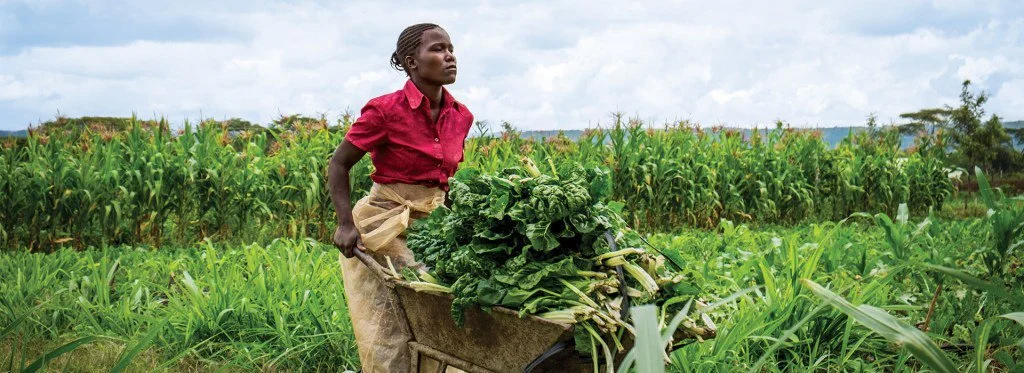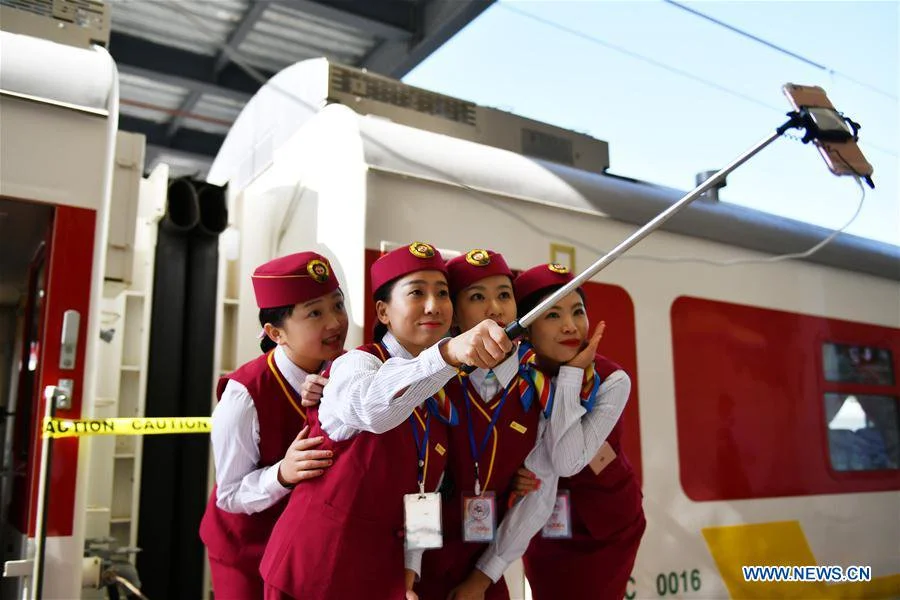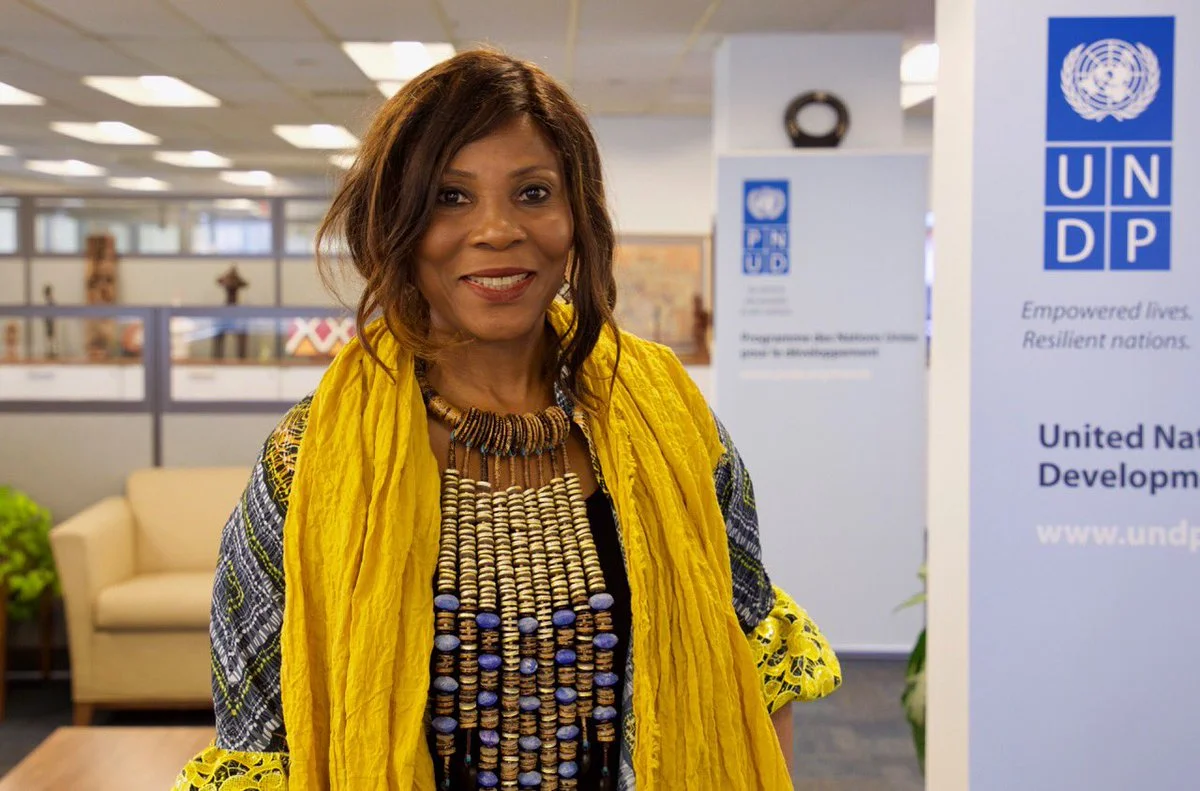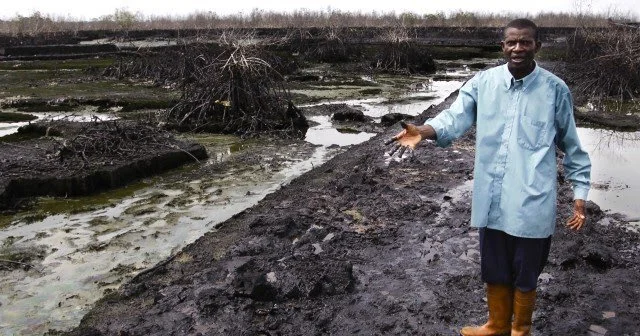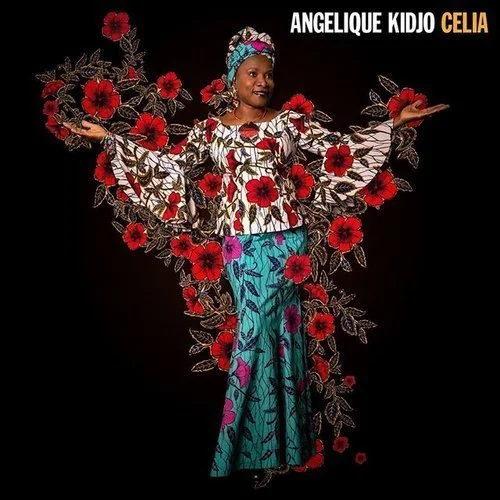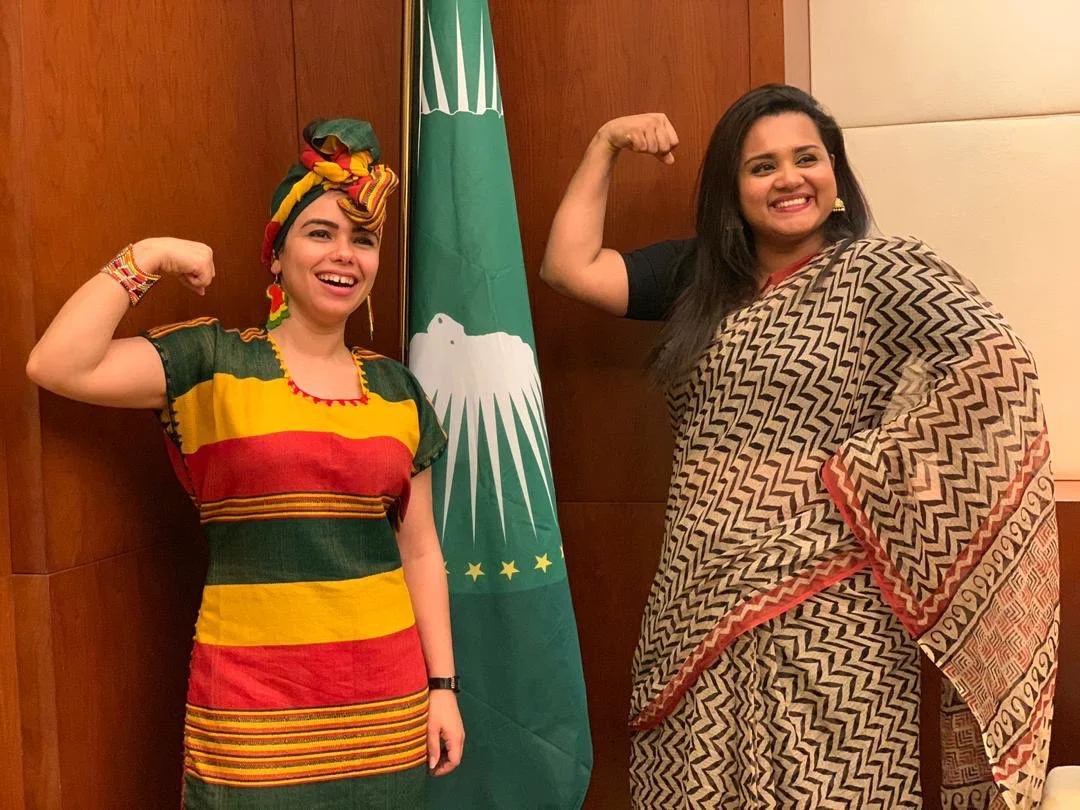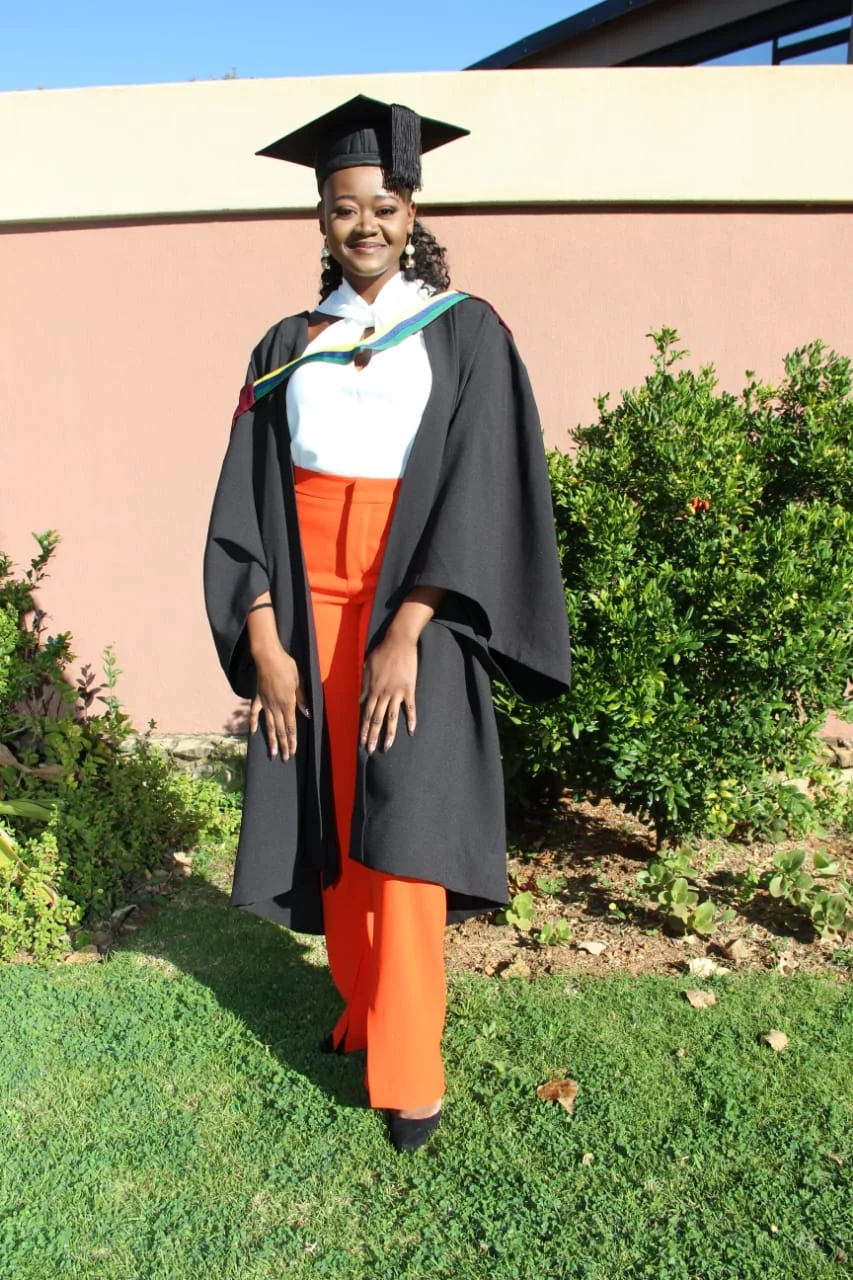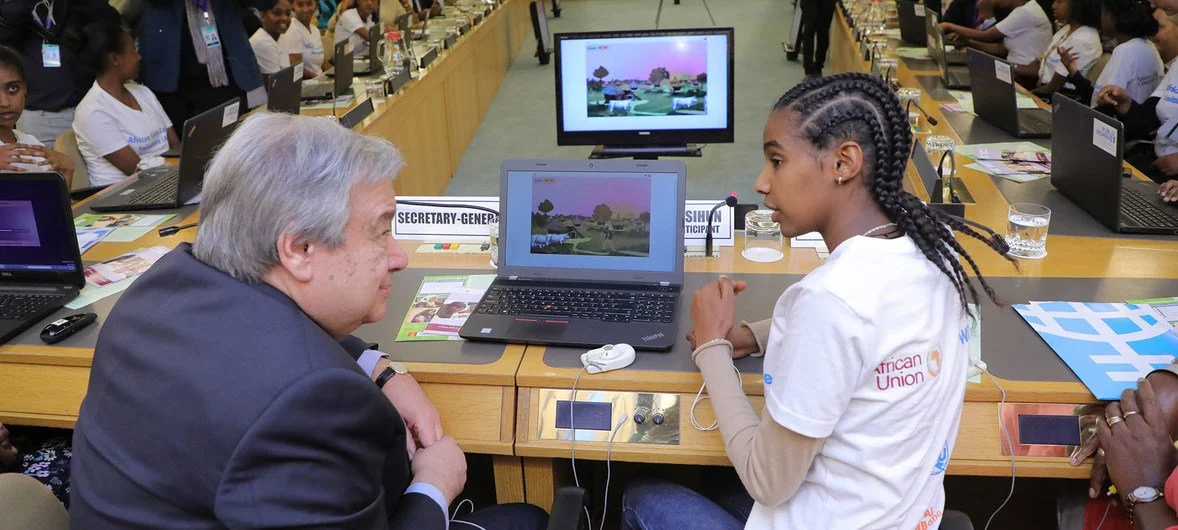After flying into the city of Bolin in the Republic of Chad, over the lush fields and receding lakes; Amina Mohammed, the United Nations’ Deputy Secretary-General landed to a rapturous welcome from traditional rulers and local women. Their faces reflected a hope and dignity slipping away under the harsh reality of poverty and insecurity. The women, smiling at them as they disembarked, showed the same resilience she had seen in women in countless contexts: an ability to survive, even in the face of multiple forms of violence and insecurity at home, in public or from political conflict.
Mechanizing Agriculture is Key to Food Security | The Youth Cafe
BY BUSANI BAFANA
In African woman with hoe in hand is the default symbol of agriculture in Africa, according to the late Calestous Juma, African academic and former Harvard Kennedy School professor. Mr. Juma used that image to convey the drudgery-filled farming that women on the continent face. Women grow 70% of Africa’s food on smallholder farms, a task anchored by physical labour.
Africa’s Megacities a Magnet for Investors | The Youth Cafe
BY FINBARR TOESLAND
Megacities, cities with a population of at least 10 million, are sprouting everywhere in Africa. Cairo in Egypt, Kinshasa in the Democratic Republic of the Congo and Lagos in Nigeria are already megacities, while Luanda in Angola, Dar es Salaam in Tanzania and Johannesburg in South Africa will attain the status by 2030, according the United Nations. Abidjan in Côte d’Ivoire and Nairobi in Kenya will surpass the 10 million threshold by 2040. And by 2050 Ouagadougou in Burkina Faso, Addis Ababa in Ethiopia, Bamako in Mali, Dakar in Senegal and Ibadan and Kano in Nigeria will join the ranks—bringing the total number of megacities in Africa to 14 in about 30 years.
No Real Development in Africa Without Regional Integration | The Youth Cafe
By Ahunna Eziakonwa
United Nations Assistant Secretary-General Ahunna Eziakonwa is the new Director of the Regional Bureau for Africa of the United Nations Development Programme (UNDP). Ms. Eziakonwa had served as the UN Resident Coordinator in Ethiopia, Uganda and Lesotho. In this interview with Africa Renewal’s Kingsley Ighobor, she discusses key issues pertaining to Africa’s socioeconomic development, including the empowerment of women and youth and Africa’s free trade area, which entered into force in April. These are excerpts.
Countries Propose a Treaty to End Corporate Impunity | The Youth Cafe
BY HANS WETZELS
When Ecuadorian diplomat Luis Gallegos first proposed a “Binding Treaty on Business and Human Rights,” many countries and environmental activists welcomed the idea with open arms. Backed by South Africa, Mr. Gallegos urged the UN Human Rights Council in Geneva, Switzerland, to immediately begin negotiations to end human rights violations and environmental damage by transnational corporations.
African Music on a Round Trip —From Cotonou to Cuba and Back | The Youth Cafe
BY FRANCK KUWONU
It’s Sunday night at Aba House, an open-air bar in Lomé, Togo’s capital, and stylish young men and women in modern African dress fill the dance floor as the bass guitarist pumps up the tempo. Powerful! Soulful! The lyrics are in Mina, a local language in southern Togo and parts of neighboring Benin, but the music is unmistakably Afro-Cuban, a genre with global acclaim. The weather is cool, the air filled with a misty marine breeze coming from the roaring Atlantic Ocean.
Young People can Capably Lead Africa Into the Future | The Youth Cafe
By Aya Chebbi, African Union Youth Envoy
Aya Chebbi of Tunisia is the first-ever youth envoy of the African Union. Her appointment in November 2018 boosts the AU’s efforts to include the talents and skills of the continent’s bulging youth population in achieving its Agenda 2063, a framework for Africa’s socioeconomic transformation. Ms. Chebbi is expected to promote, among other issues, youth leadership and participation in governance, gender equality, safe migration, employment and climate change action. Raphael Obonyo, a youth activist, interviewed Ms. Chebbi for Africa Renewal on a range of issues affecting Africa’s young people. These are excerpts.
Good Education is the Foundation for Effective Female Leadership | The Youth Cafe
BY FRANCK KUWONU
African women’s restricted access to quality education, knowledge and resources is preventing them from gaining leadership positions on the continent, says Kafui Adjamagbo-Johnson, a veteran West African women’s rights activist. Another problem is that women—especially rural women—are allowed only limited control over finances, means of production and land. Consequently the pace of women’s empowerment remains slow, Ms. Adjamagbo-Johnson says.In an interview with Africa Renewal, Ms. Adjamagbo-Johnson reflected on decades of women’s political leadership, gender activism and professional engagement in Togo, her home country, and West Africa in general.
Preparing Africa’s graduates for today | The Youth Cafe
BY RAPHAEL OBONYO
Many Africans with advanced qualifications are finding their university degrees are just not enough to land a job in the current market. Ruth Rono graduated from Chuka University, Kenya, in 2015 with first-class honours. Without a job after many years of trying, Ms. Rono was forced to take menial jobs such as working on people’s farms.
Technology is a Liberating Force for African Women | The Youth Cafe
BY CHARLES ONYANGO-OBBO
As ride-hailing apps proliferate the globe, the year-old An Nisa Taxi in Kenya is one of the standouts in Africa. Developed by 33-year-old Mehnaz Sarwar, An Nisa is run by women and serves female passengers and children exclusively. Ms. Sarwar sought to overcome two obstacles: limited job opportunities for women in a male-dominated industry and the reluctance of women to hail taxis, because physical abuse from drivers—including sexual abuse—is known to take place.



